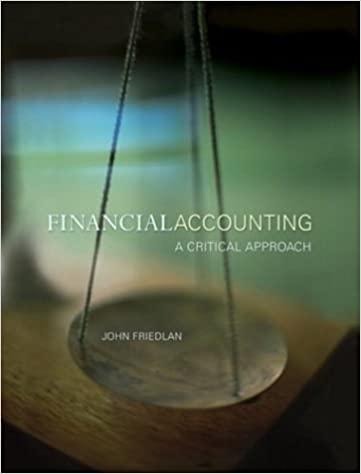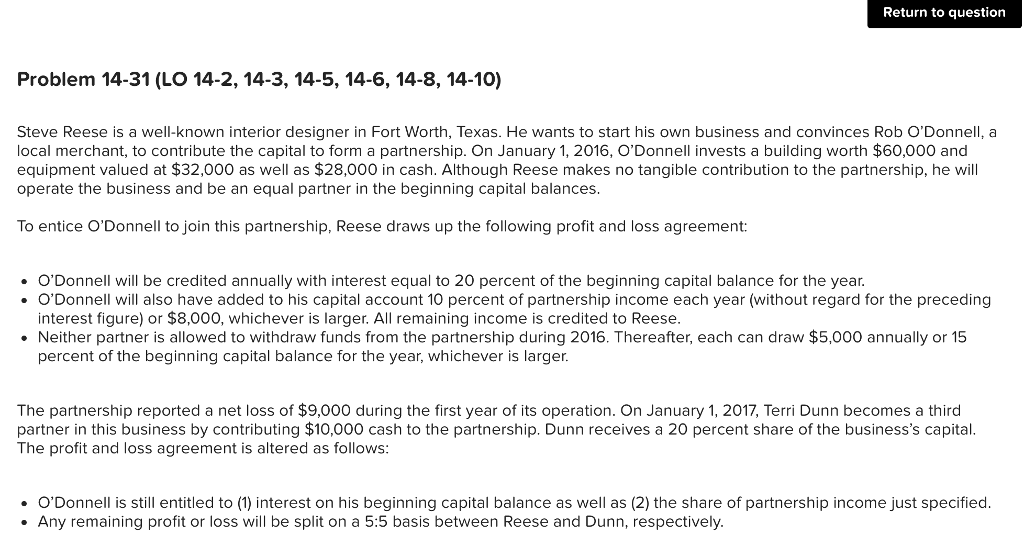

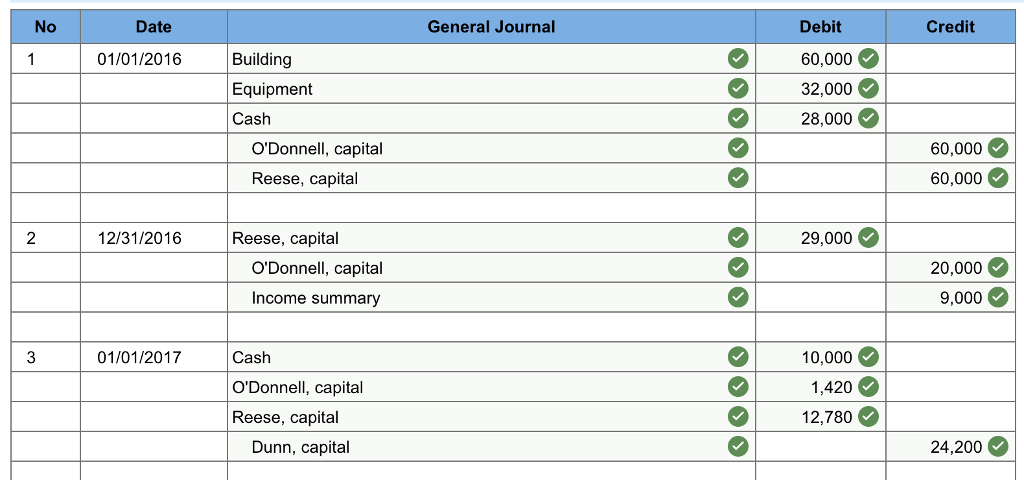
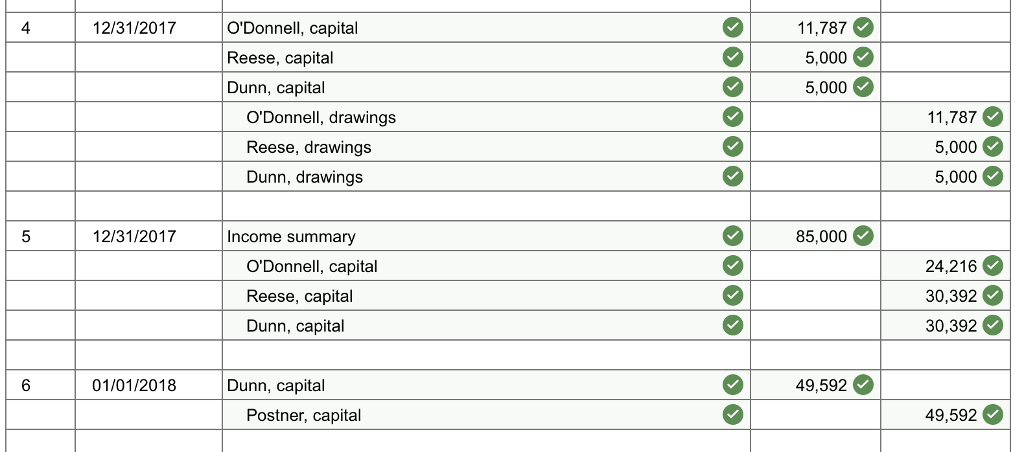
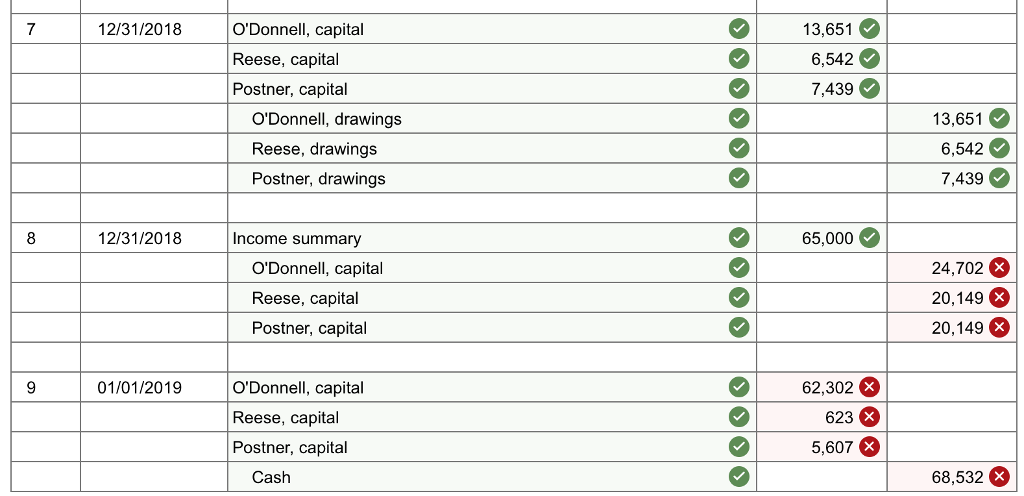
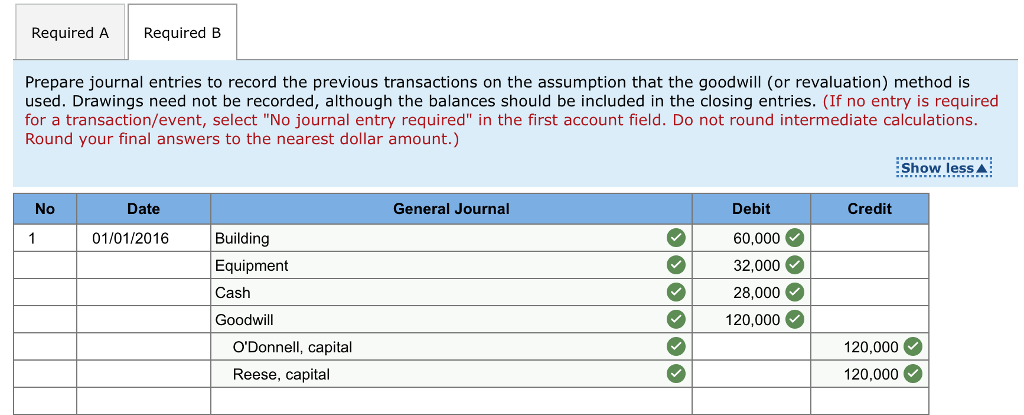
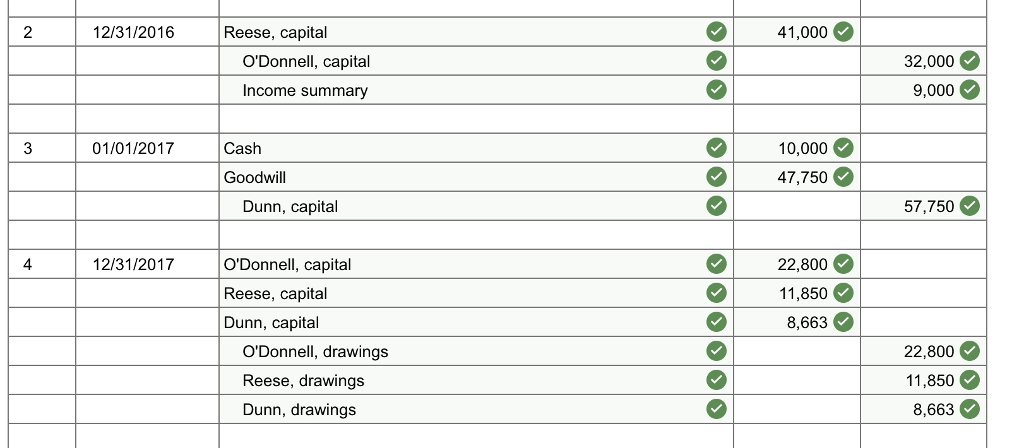
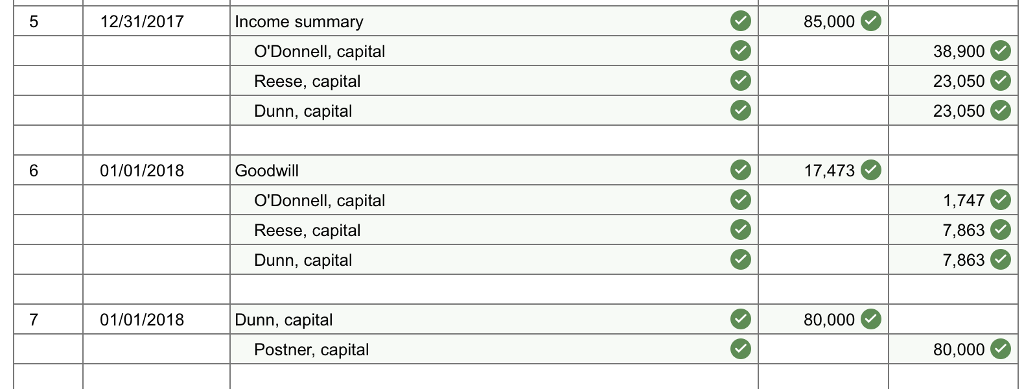
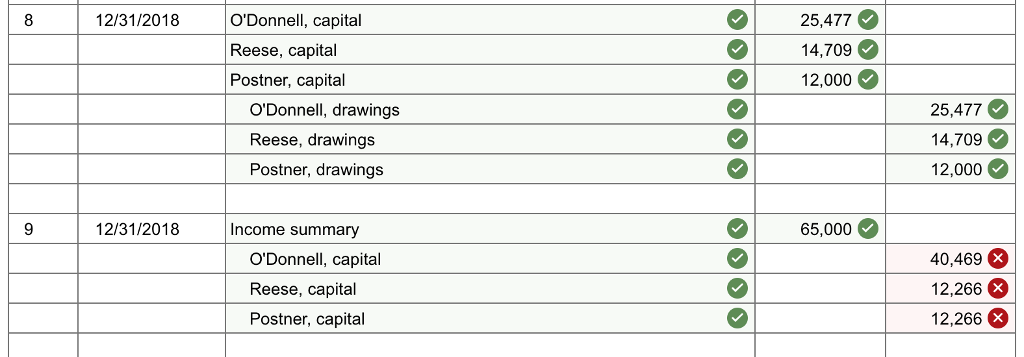
 Need answers for part A and B, last entries, ones I got wrong
Need answers for part A and B, last entries, ones I got wrong
Return to question Problem 14-31 (LO 14-2,14-3, 14-5, 14-6,14-8, 14-10) Steve Reese is a well-known interior designer in Fort Worth, Texas. He wants to start his own business and convinces Rob O'Donnell, a local merchant, to contribute the capital to form a partnership. On January 1, 2016, O'Donnell invests a building worth $60,000 and equipment valued at $32,000 as well as $28,000 in cash. Although Reese makes no tangible contribution to the partnership, he will operate the business and be an equal partner in the beginning capital balances. To entice O'Donnell to join this partnership, Reese draws up the following profit and loss agreement: O'Donnell will be credited annually with interest equal to 20 percent of the beginning capital balance for the year. O'Donnell will also have added to his capital account 10 percent of partnership income each year (without regard for the preceding interest figure) or $8,000, whichever is larger. All remaining income is credited to Reese Neither partner is allowed to withdraw funds from the partnership during 2016. Thereafter, each can draw $5,000 annually or 15 percent of the beginning capital balance for the year, whichever is larger The partnership reported a net loss of $9,000 during the first year of its operation. On January 1, 2017, Terri Dunn becomes a third partner in this business by contributing $10,000 cash to the partnership. Dunn receives a 20 percent share of the business's capital. The profit and loss agreement is altered as follows: O'Donnell is still entitled to (1) interest on his beginning capital balance as well as (2) the share of partnership income just specified. Any remaining profit or loss will be split on a 5:5 basis between Reese and Dunn, respectively. Return to question Problem 14-31 (LO 14-2,14-3, 14-5, 14-6,14-8, 14-10) Steve Reese is a well-known interior designer in Fort Worth, Texas. He wants to start his own business and convinces Rob O'Donnell, a local merchant, to contribute the capital to form a partnership. On January 1, 2016, O'Donnell invests a building worth $60,000 and equipment valued at $32,000 as well as $28,000 in cash. Although Reese makes no tangible contribution to the partnership, he will operate the business and be an equal partner in the beginning capital balances. To entice O'Donnell to join this partnership, Reese draws up the following profit and loss agreement: O'Donnell will be credited annually with interest equal to 20 percent of the beginning capital balance for the year. O'Donnell will also have added to his capital account 10 percent of partnership income each year (without regard for the preceding interest figure) or $8,000, whichever is larger. All remaining income is credited to Reese Neither partner is allowed to withdraw funds from the partnership during 2016. Thereafter, each can draw $5,000 annually or 15 percent of the beginning capital balance for the year, whichever is larger The partnership reported a net loss of $9,000 during the first year of its operation. On January 1, 2017, Terri Dunn becomes a third partner in this business by contributing $10,000 cash to the partnership. Dunn receives a 20 percent share of the business's capital. The profit and loss agreement is altered as follows: O'Donnell is still entitled to (1) interest on his beginning capital balance as well as (2) the share of partnership income just specified. Any remaining profit or loss will be split on a 5:5 basis between Reese and Dunn, respectively









 Need answers for part A and B, last entries, ones I got wrong
Need answers for part A and B, last entries, ones I got wrong 





